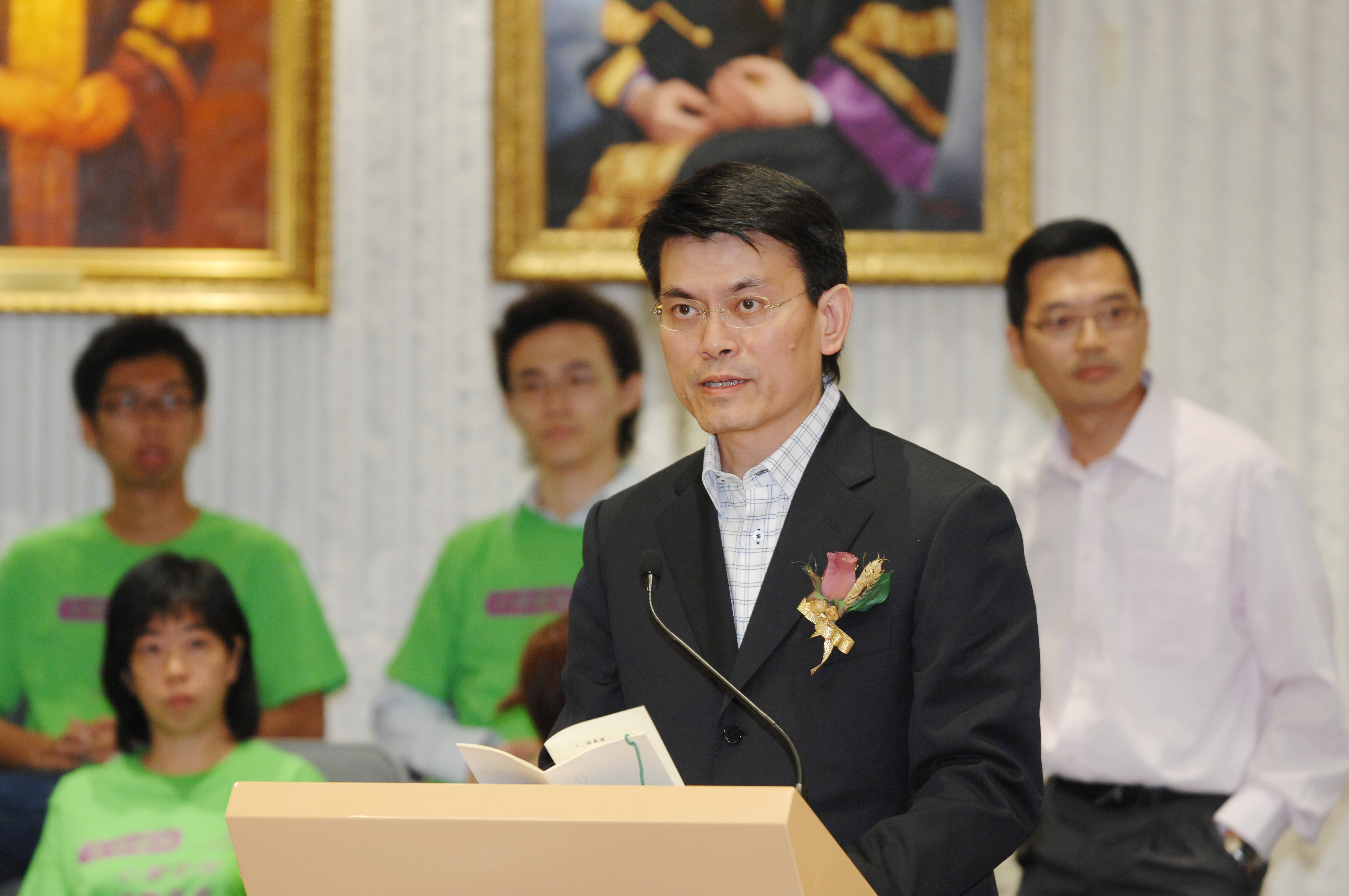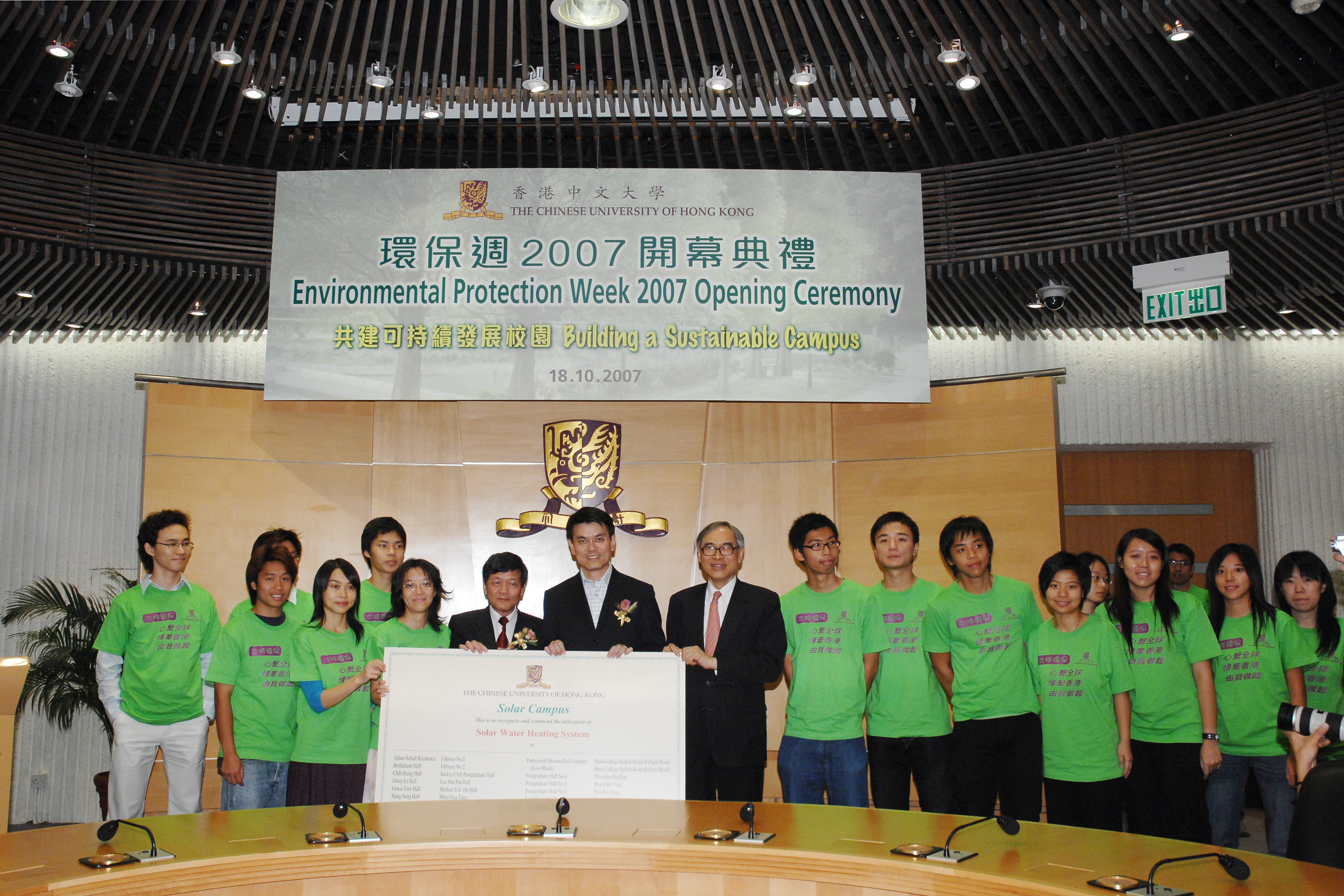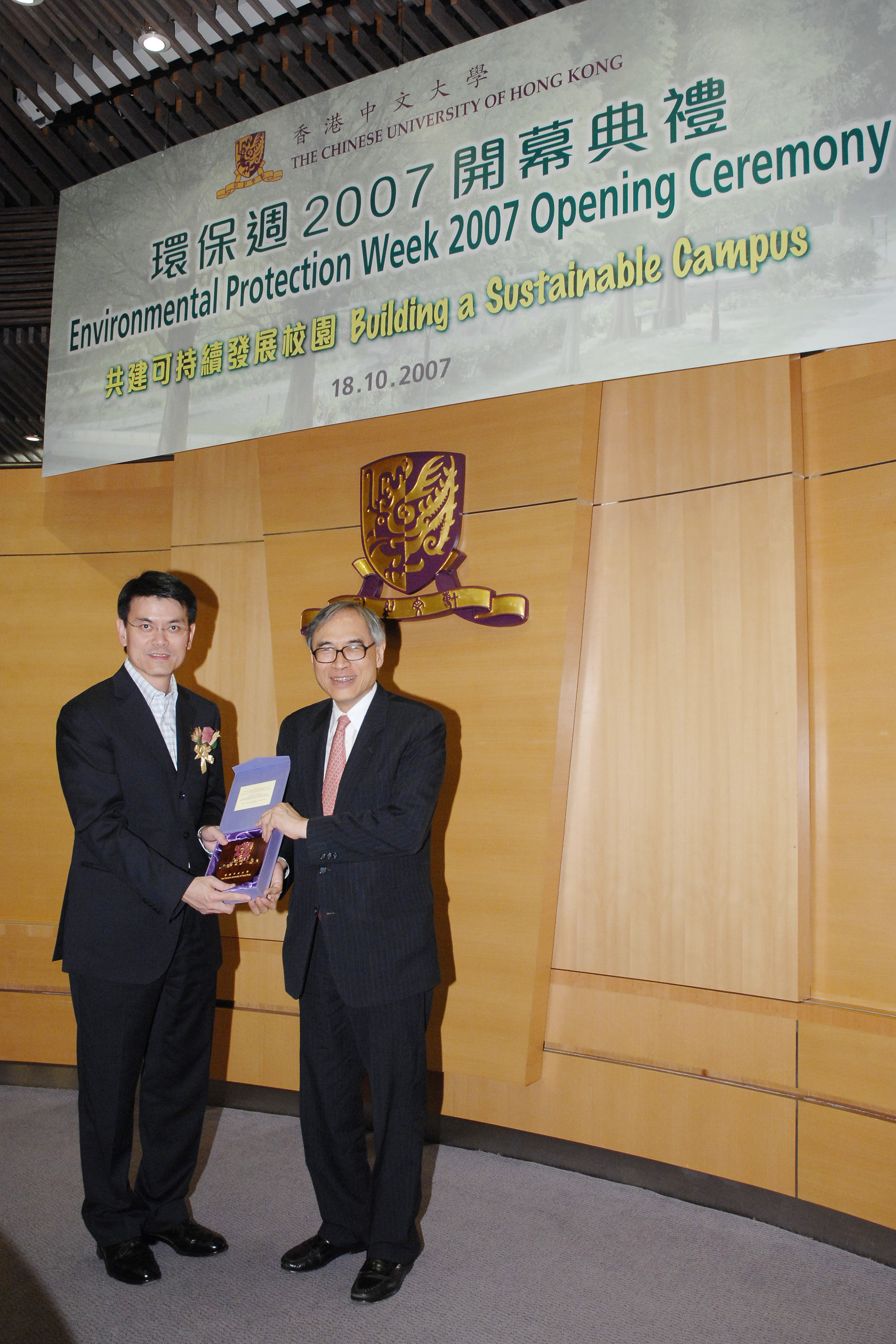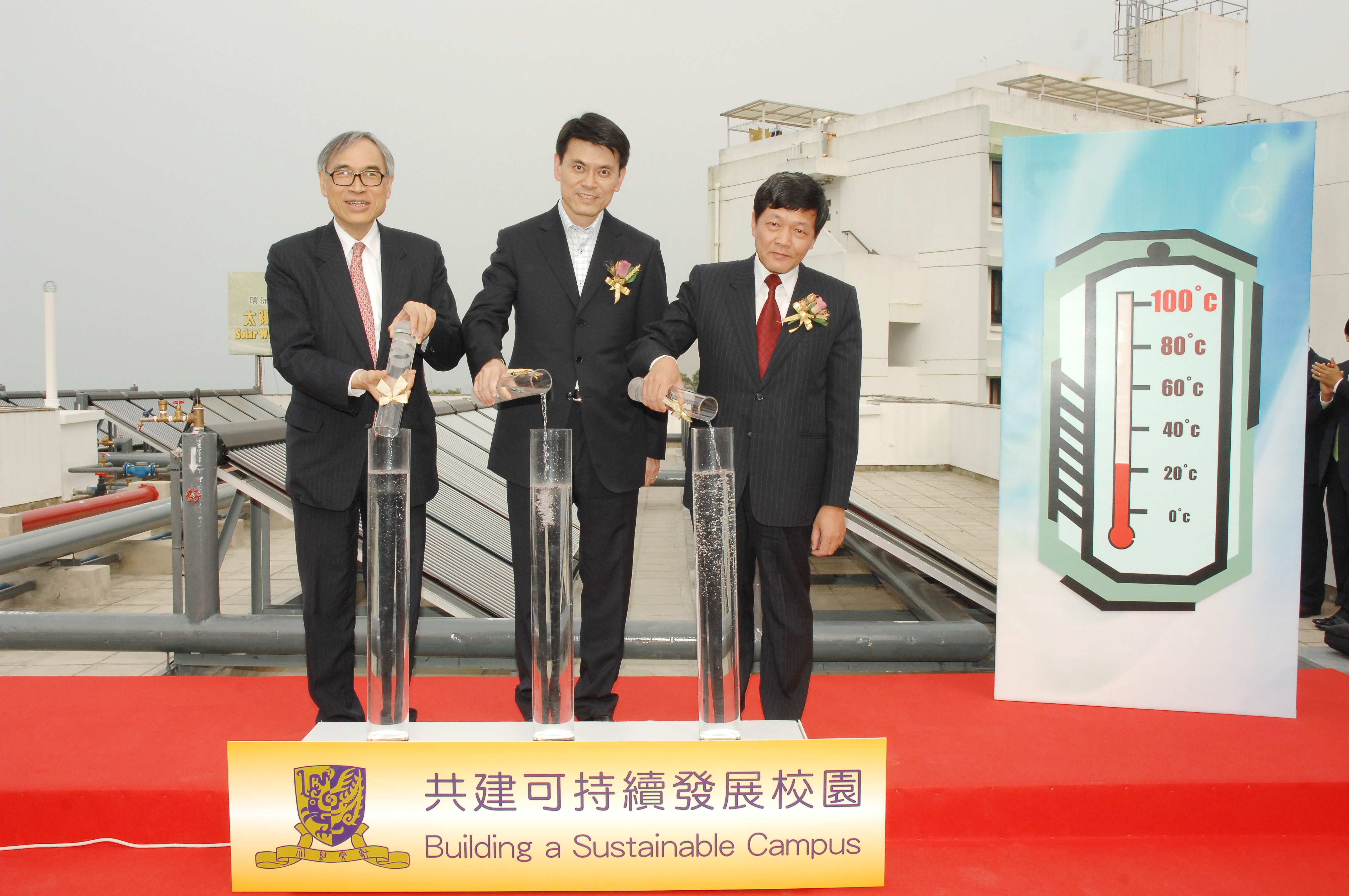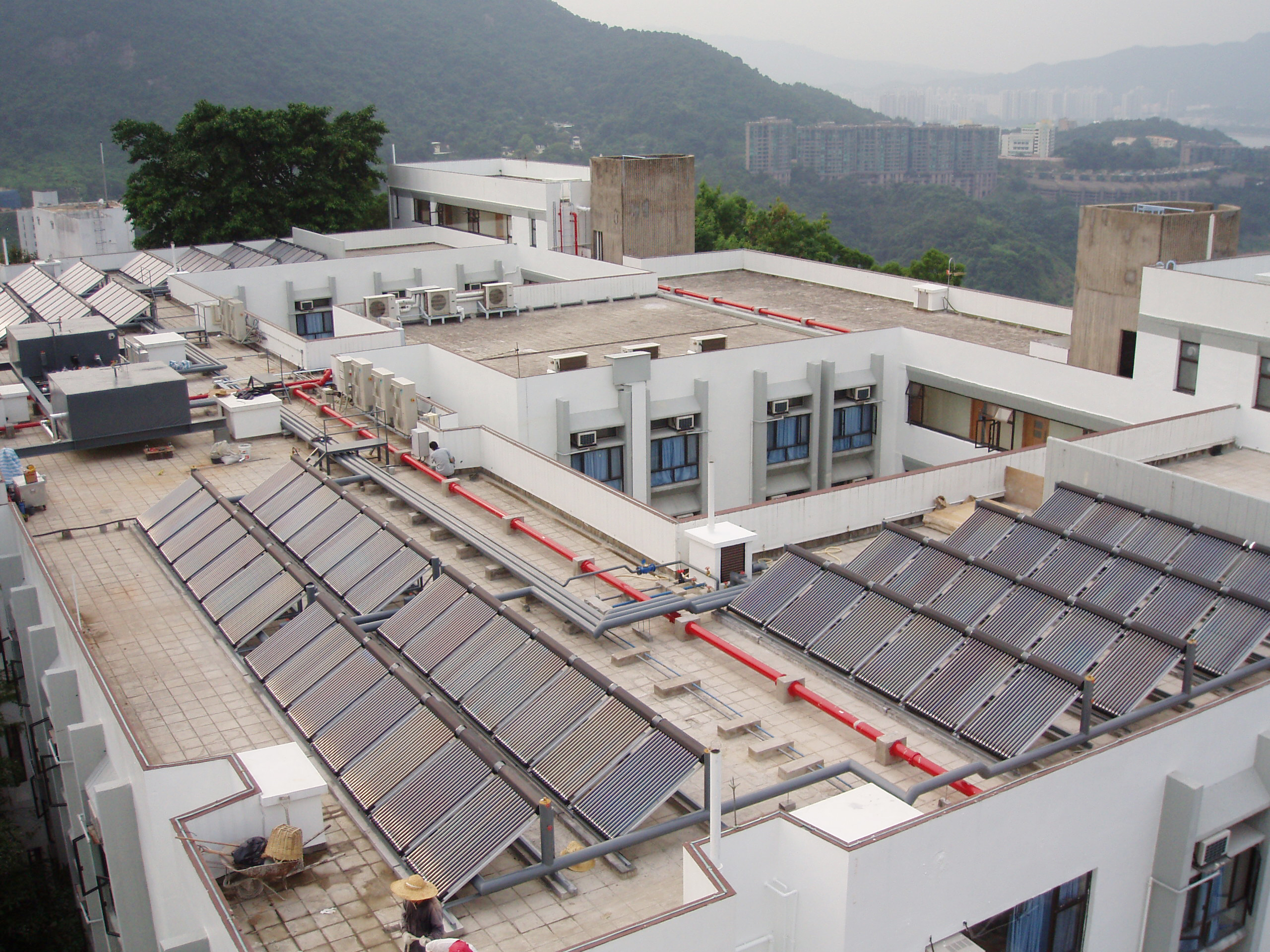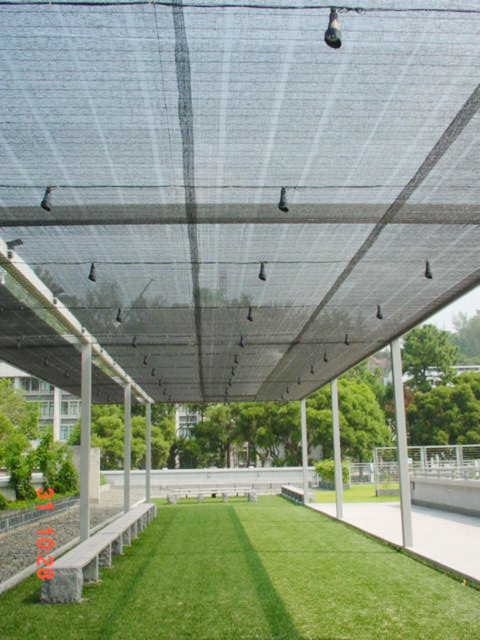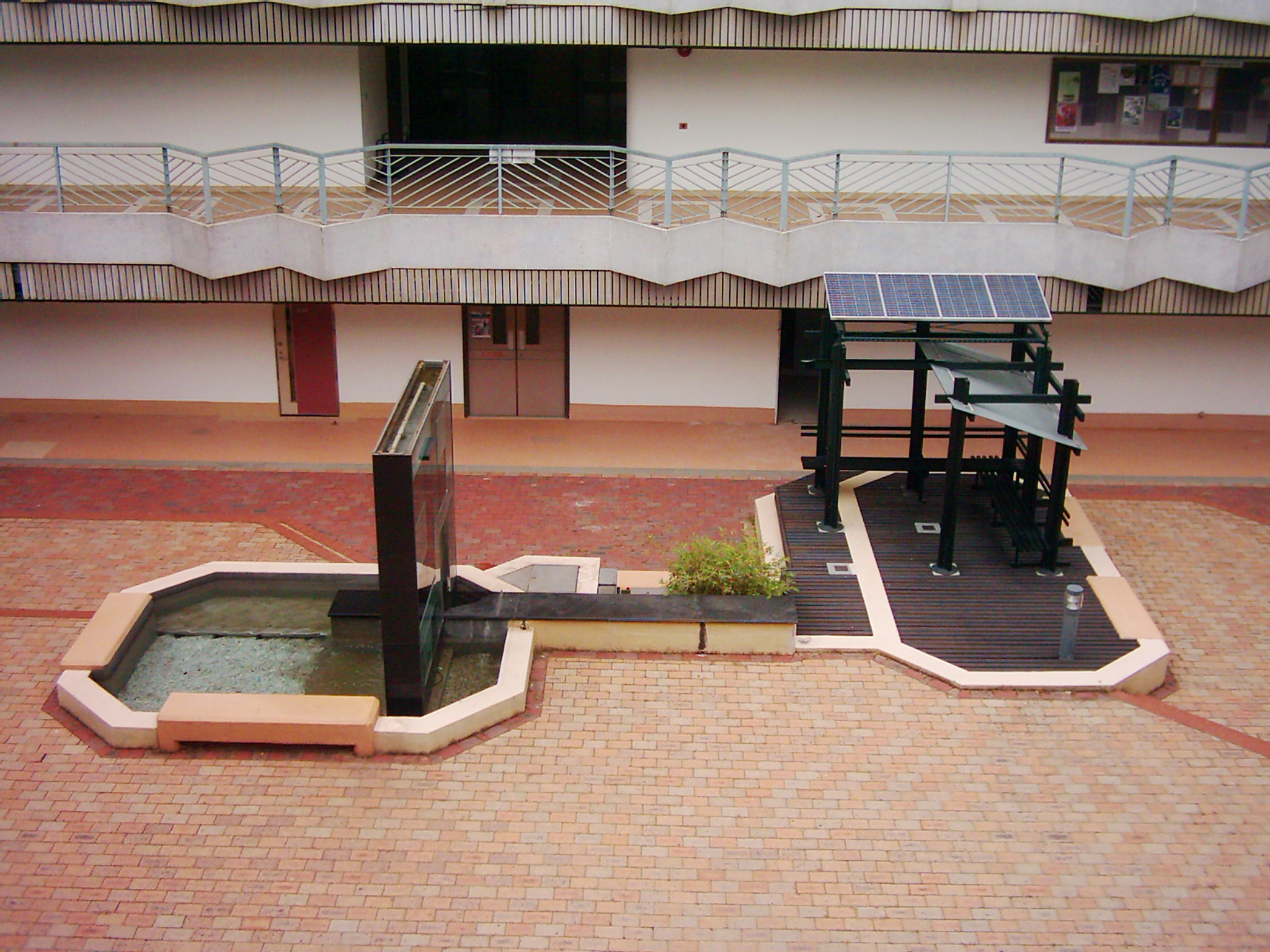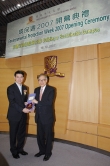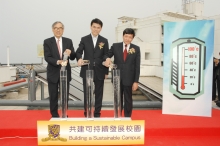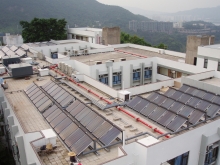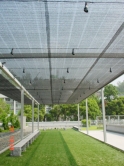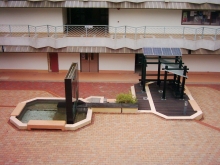News Centre
CUHK Develops Renewable Energy and Green Roofs in Full Scale for a Sustainable Campus
As a vanguard of environmental protection among local tertiary institutions, The Chinese University of Hong Kong (CUHK) has long pioneered a green campus culture by spearheading innovative measures and a wide variety of education activities in support of environmental protection. This year CUHK organizes another Environmental Protection Week and the theme is ‘Building a Sustainable Campus’. The event was officially kicked off today (18 October) by Mr. Edward Yau Tang-wah, Secretary for the Environment.
At the opening ceremony, Mr. Yau and Prof. Lau presented a number of environmental awards to buildings that have made outstanding achievements in energy saving. The awardees include the winners of the Energy Saving Incentive Scheme and the Energy and Water Saving Contest for Student Hostels. Mr. Yau and Prof. Lau also presented a Certificate of Commendation to 27 student hostels that are fitted with evacuated tube solar collectors. By using solar heated water for showers, these hostels are promoting the use of renewable energy. The officiating guests also visited a hostel (Adam Schall Residence) to symbolically power on its solar water heater system at its rooftop. This underlines the University’s commitment to sustainable development.
The solar hot water system for the student hostels was funded by the University Grants Committee. CUHK installed its first solar hot water system at the Cheung Chuk Shan Amenities Building as early as 2004, making it the first local university to use this system. The initiative was later extended to the University Sports Centre. Unlike conventional flat-plate solar heaters, the vacuum outer layer of this solar collector acts like a vacuum flask, thereby minimizing heat loss. Its evacuated tubes maximize the collection and conduction of heat, substantially increasing efficiency. On sunny days, the system can provide hot water of up to 90 degrees Celsius.
Environmental Protection Week is aimed at raising the environmental awareness of our staff and students, and encouraging them to live an environmentally-friendly life. The event comprises exhibitions, film discussion sessions, and a Community Afforestation Scheme that will plant over 10,000 trees on Grassy Hill, Shatin to green the area and prevent wildfire.
The Chinese University is the first university in Hong Kong to initiate a campus-wide environmental audit; it also publishes a yearly campus environment report. Besides promoting education in environmental protection, CUHK has an efficient environment management structure in place which sets goals and formulates guidelines for various green practices. These include waste reduction and management, energy conservation and management, use of renewable energy, ecological protection, water use and drainage, and campus greening. The structure ensures that campus operations meet the principles of sustainable development and that the campus will be green and clean. Some environmental measures implemented by the University in recent years are:
‧In 2004, the University developed a Solar Garden on the rooftop of the Lady Shaw Building by using photovoltaic panels to absorb solar energy for lighting and fountain operations. Grass and vegetation were also grown on the roof to reduce air-conditioning load and add a gleam of green to the campus. The move is in line with the Chief Executive’s call in his Policy Address for the development of green roofs. The University plans to turn 60% of the roofs on campus into green roofs.
‧The University recycles waste paper, metal, plastic, photocopier cartridges, plastic bags, rechargeable batteries, clothes, books etc. In 2006, a total of 320 tonnes of waste paper were recycled, representing 5,500 trees saved from felling.
‧The University rigorously implements its campus greening and plant conservation policies. Since 2002, it has planted close to 3,000 trees on campus. It also invests tremendous effort into the protection of endangered plants.
‧The University requires office paper tenderers to provide recycled paper which has not been bleached by chlorine and which does not contain non-biodegradable additives.
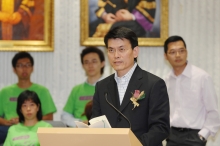
Mr. Edward Yau Tang-wah, Secretary for the Environment speaking at the Environmental Protection Week 2007 Opening Ceremony.
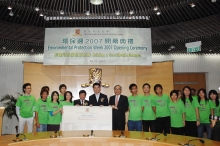
Mr. Edward Yau, Prof. Lawrence J. Lau and Prof. Lam Kin Che present a Certificate of Commendation to 27 student hostels that are fitted with evacuated tube solar collectors.
